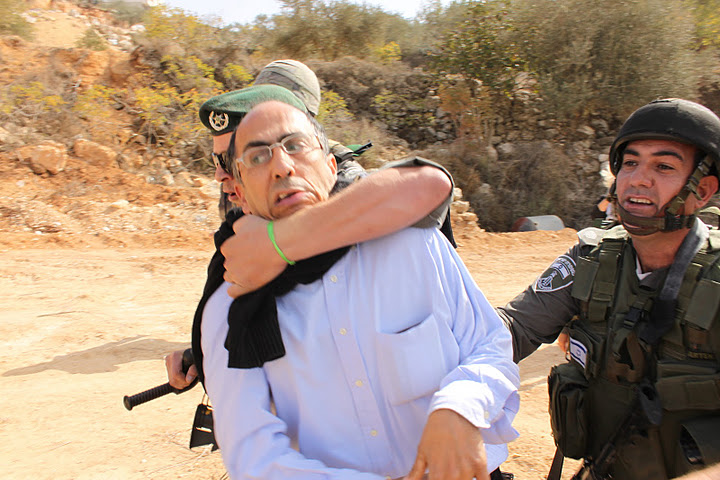Tag: Settlers
-
Jerusalem: Explosions, arrests and violence as Israel clears way for settlement activity
by Alistair George 13 November 2011 | International Solidarity Movement, West Bank Three Palestinians were arrested and others were detained, beaten and pepper sprayed by the Israeli military in Al-Walajeh yesterday, as villagers attempted to prevent the detonation of explosives used to widen the route for the separation wall on the village’s land. Previously, large…
-
Palestinian Freedom Riders to ride settler buses to Jerusalem
13 November 2011 | Freedom Riders Inspired by the Freedom Rides of the US Civil Rights Movement Palestinian activists will attempt to board segregated Israeli settler buses to occupied East Jerusalem Groups of Palestinian Freedom Riders will attempt to board segregated settler buses heading to Jerusalem through the occupied West Bank this Tuesday November 15,…
-
Solidarity with the Palestinian Freedom Riders
10 November 2011 | Jewish Voice for Peace On November 15th, Palestinian activists will attempt to board segregated Israeli settler public transport headed to occupied East Jerusalem in an act of civil disobedience inspired by the Freedom Riders of the U.S. Civil Rights Movement. Fifty years after the U.S. Freedom Riders staged mixed-race bus rides…



